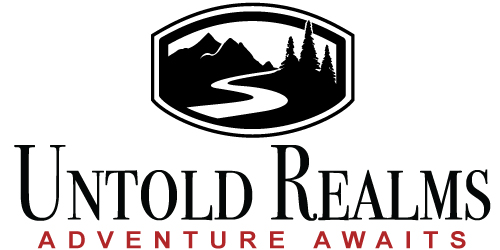Because there is no magic system for Blades & Black Magic (yet), Jeff Vandine and I have been discussing various ways to create one for it. Here is what we have started.
One key to this magic system framework is flexibility. The system needs to somehow be able to fit into both a swords & sorcery, low magic campaign, as well as a high fantasy one. Another key is for the system to accommodate both traditional spell lists and improvisational magic.
To meet those needs, we will use the system from classic Wizard for magic, but with a few changes. What is presented below is the basic framework for the magic system, which we will be fleshing out over the coming weeks.
The Basic System
To be a wizard or sorcerer, a character must take the Magic (IQ) skill at the Trained (T) level:
Magic (IQ).
Allows a character to cast spells or weave magic. This skill must be taken at character creation, and costs 4 points. _
The Expert (X). Level of this skill is very rare, and represents powerful wizards or archimages. The Expert level can only be gained through play, and will cost 2,880 XP. In addition to rolling the usual 4 dice for skill tests and keeping the low 3, the Expert level also allows improvisational or "unbound" magic.
All wizards at the Trained level will use the standard spell lists and costs to weave magic. Spell costs can be in fatigue, in the case of a high fantasy setting, or damage–blood–for a gritty, swords & sorcery setting. Backlash effects will be handled by random rolls on a set table.
Wizards start with up 1d3+1 spells, and can learn up to their IQ in total spells. These spells must be learned from another wizard, and not through simple study. Additional spells must be gained through play.
Unbound Magic
At very high levels, wizards or sorcerers are assumed to have mastered magic, and unlocked many of its secrets. This leads to a form of improvisational, or "unbound" magic.
This portion of the system is still being discussed, but a first blush would have an unbound magic spell be driven by its intended effect. The Referee and player would agree on what the spell did, and then the Referee would assign a cost and DRMs depending on various aspects, such as range, duration, etc.
The difficulty of the spell would be reflected in how many dice are required for the skill roll. Cost would be determined by how much damage a spell might cause and the effect it had on the story or plot. Any backlash effects would be more extreme for unbound magic–greater power equals greater risk!
Animal or creature magic could also fit into this category, and allow the Referee to create abilities to suit whatever effects he wants.
A Word About Magic Items…
In this system, magic items would be very rare–even in high fantasy campaigns. They would not be created by normal wizards at the Trained level, but only by Expert ones.
Magic items would require blood (damage) for creation cost, and maybe even the sacrifice of attribute points by the wizard. This would reflect the infusion of the wizard’s own life force into the magic item–making them very rare… NO MAGIC ITEM SHOPS!
Options For Everyone
Another way to meet different campaigns’ needs is to have optional rules for different situations or effects. These will start with, but not be limited to:
Magical Paths. This is a system that I have in my Ealdun and Middle Lands campaigns to split up spells into categories, based not he kind of magic they use. It helps reflect the different kinds of wizards there may be–necromancers, illusionists, elemental-based wizards, etc. This adds color and story hooks.
Magical Orders. Another set of optional rules is that of magical orders. This is simply the creation of various groups or organizations of wizards or sorcerers that have common interests or goals. Wizards in these groups would have access to common spells, and might gain other game benefits as well. Another way to add color to the campaign, and many more story hooks.
Inexperienced Skill Levels. One more option set of rules would be the allowance of Inexperienced (I) wizards. This would cover hedge witches, people with some special abilities, etc. They might have only 1 or 2 spells, like an inherent ability. Skill rolls would use 4 or 5 dice, reflecting their untrained nature, and the backlash effects would be much more extreme. (I have not really worked this part through–definitely optional!)
And that’s it–a framework to build upon. As we work through each facet of the system, I will be publishing updates, eventually posting the house rules on the site. Let us know what you think about this idea/strategy/framework!
Marko ∞
(Originally published on inthelabyrinth.org, on 7/2/2021.)
